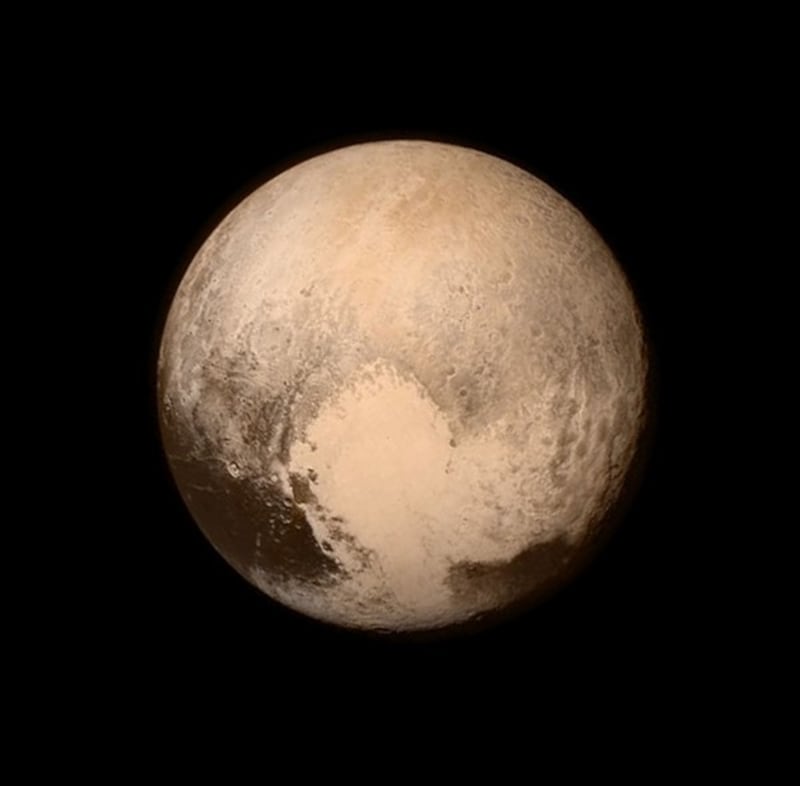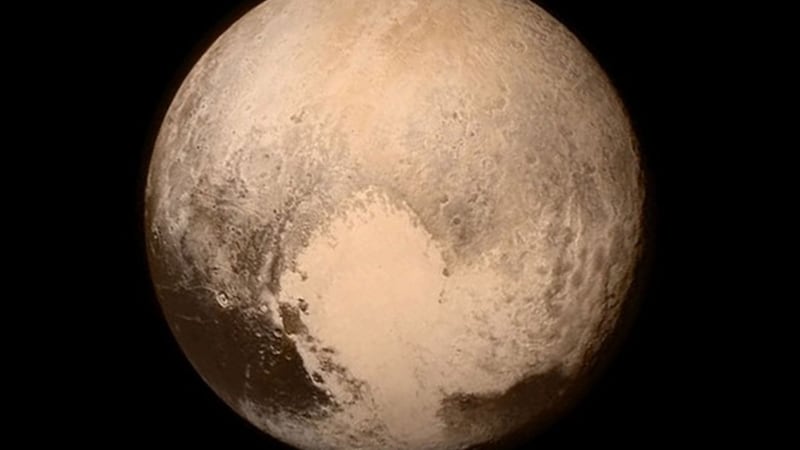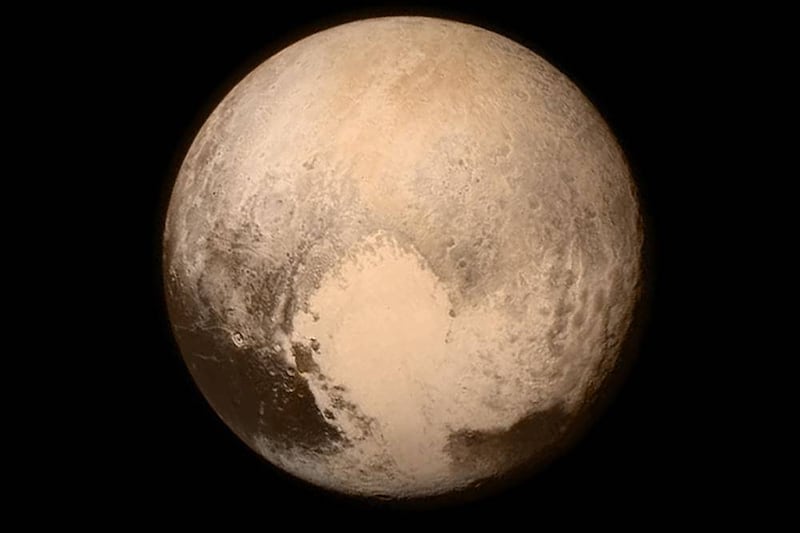Ever since Pluto lost its planet status more than a decade ago, the world has been in mourning. But now a group of scientists are getting pretty serious about restoring the so-called “non-planet” and making Pluto great again.
Judging by how people feel about our beloved Pluto, this will be seen as welcome news.
I just wanna get one thing straight..Pluto will always be a planet in my eyes!! Luv ya plute! ????
— Kaylen Morales (@KreativeJoyTv) August 23, 2016
I'm actually still sad about Pluto not being a planet anymore
— dulceyodog. (@dulcita16) March 7, 2017
Kirby Runyon, a scientist at Johns Hopkins University in the US, says Pluto, along with more than 100 celestial bodies in the solar system, including the moons of Jupiter and Earth, should be awarded the (coveted) planet status. Runyon says Pluto “has everything going on on its surface that you associate with a planet … there’s nothing non-planet about it”.
So why was Pluto demoted in the first place?
Pluto GIF – Find & Share on GIPHYAccording to the International Astronomical Union (IAU), a planet is a celestial body (a natural body outside the Earth’s atmosphere) that is in orbit around the sun, has sufficient mass that its gravity pulls it into an almost round shape, and has cleared the neighbourhood around its orbit.Pluto falls short on the last point – there’s no clear neighbourhood around its orbit as it overlaps with Neptune. In 2006, members of the IAU met up in Prague to vote in new rules for defining planets and concluded that Pluto, after 76 years sitting proudly alongside the eight other proper planets, didn’t make the cut. Instead, the IAU created a new subcategory called “dwarf planets” where Pluto was placed.
Why are these researchers convinced Pluto should be a planet again?

It’s all about the semantics. Researchers are arguing for a definition of planet that focuses on the intrinsic qualities of the body itself – and not the external factors such as its orbit or other objects around it.They define a planet as “a sub-stellar mass body that has never undergone nuclear fusion”, that has enough gravitational power to maintain a roughly round shape – even if it bulges at the equator (like Earth) because of a three-way squeeze of forces created by its gravity and the influence of both the sun and a nearby larger planet.Otherwise Pluto does fit the IAU definition – it orbits the sun and it is massive enough that the forces of gravity have made it round.
So what now?
Saskia Wariner GIF – Find & Share on GIPHYResearchers say the new definition does not require approval from a central governing body. This is because, they add, most of the members of the team are closely affiliated with geology and other geosciences, and that their new geophysical definition is more useful than the IAU’s astronomical definition.Runyon himself is of the opinion that the very word “planet” carries a “psychological weight” and that a debate might engage public interest.“I want the public to fall in love with planetary exploration as I have,” Runyon said. “It drives home the point of continued exploration.”But does this all mean Pluto will be restored to its former glory? We’ll have to wait and see.




